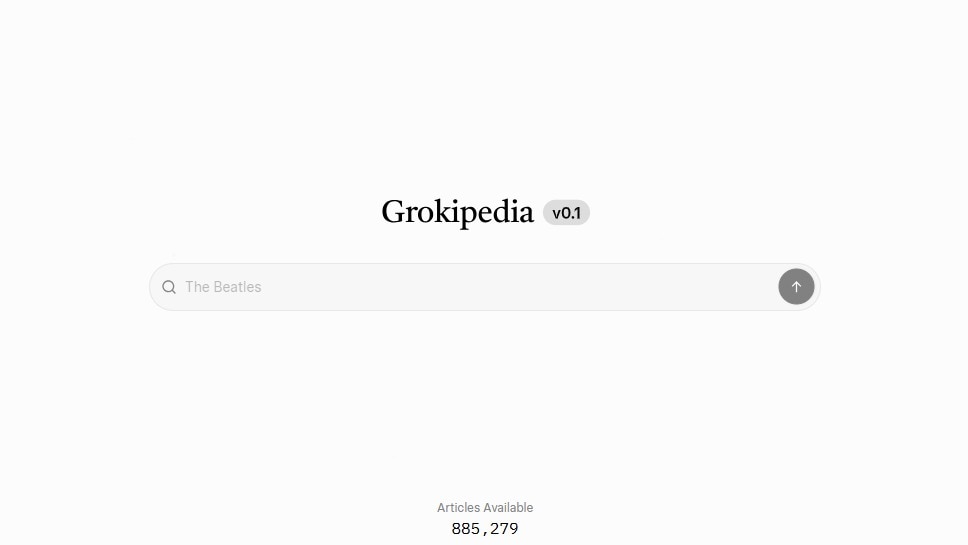Elon Musk’s xAI has launched Grokipedia, an AI-powered encyclopedia built as a direct competitor to Wikipedia. The platform features around 9,000 articles generated entirely by the Grok large language model, positioning itself as a more “truthful and independent alternative” to human-edited platforms.
Key Differences from Wikipedia
- Content Creation: Wikipedia relies on human volunteers while Grokipedia uses AI generation
- Editing Model: Wikipedia allows direct editing; Grokipedia is read-only with feedback submission
- Verification: Articles include “fact-checked by Grok” timestamps rather than community review
Musk claims this approach eliminates ideological bias from human editors and creates a more neutral knowledge base. The platform aims to be open-source and more truthful than existing alternatives.
Human-in-the-Loop System
Despite its AI foundation, Grokipedia incorporates human feedback through a “human-in-the-loop” model. Users can submit suggestions and flag errors, which Grok then interprets to refine future outputs.
This quality-control layer builds on Grok’s existing training, where public contributions helped develop the Grok 4 model. xAI positions users as guides for the AI’s ongoing learning, with the system autonomously updating articles based on corrections.
Accuracy Concerns and Criticisms
However, Grokipedia’s heavy AI reliance has raised questions about accuracy and potential bias amplification. Critics note factual inconsistencies and ideological slants in politically sensitive topics.
Interestingly, many Grokipedia articles still reference Wikipedia source text, revealing continued dependence on human-curated knowledge despite the AI-first approach.
The hybrid system represents Musk’s vision for faster knowledge evolution while maintaining credibility, though its effectiveness against established platforms like Wikipedia remains to be seen.




